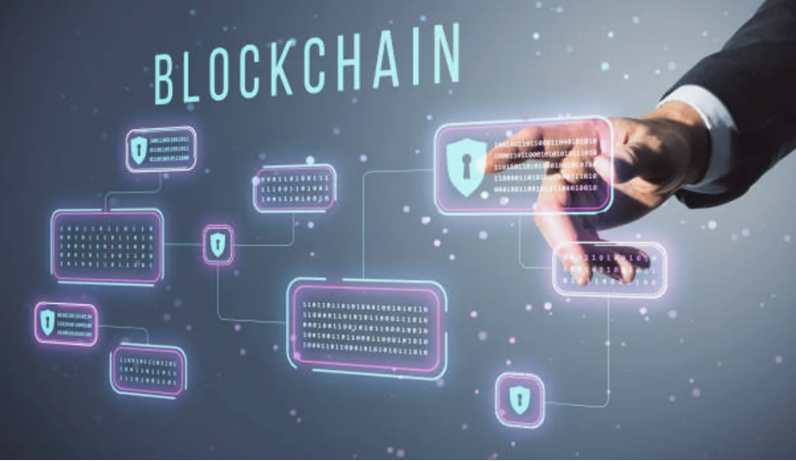Top Blockchain Startups in Germany 2025 Complete Guide

Germany has emerged as one of Europe’s most dynamic blockchain ecosystems, with innovative startups revolutionizing industries from finance to supply chain management. The top blockchain startups in Germany 2025 are not just local success stories—they’re global pioneers pushing the boundaries of decentralized technology. With 945 blockchain technology startups currently operating in Germany, including notable companies like N26, Matter Labs, Centrifuge, and IOTA, the country has established itself as a blockchain powerhouse. These companies span diverse sectors, from digital banking to layer-2 scaling solutions, creating a robust ecosystem that attracts significant international investment and talent.
Germany’s blockchain landscape is particularly concentrated in Berlin, which hosts some of the most well-funded and innovative companies in the space. The combination of strong regulatory frameworks, access to European markets, and a thriving tech talent pool makes Germany an ideal launchpad for blockchain innovation.
Why Germany Dominates the European Blockchain Scene
Germany’s blockchain ecosystem didn’t emerge overnight. The country’s strong engineering tradition, coupled with progressive regulatory approaches and substantial venture capital availability, has created fertile ground for blockchain innovation. Out of the blockchain startups in Germany, 228 companies are funded, with 54 having secured Series A+ funding, and 1 achieving unicorn status.
The German government’s blockchain strategy, launched in 2019, has provided clear guidelines for blockchain adoption across various sectors. This regulatory clarity has attracted international companies to establish their European headquarters in Germany, particularly in Berlin and Munich.
Key Factors Driving German Blockchain Success
- Regulatory Clarity: Germany’s BaFin (Federal Financial Supervisory Authority) has provided comprehensive guidelines for cryptocurrency and blockchain operations, creating a predictable business environment.
- Access to Capital: The German venture capital ecosystem has matured significantly, with both local and international investors actively funding blockchain startups.
- Talent Pool: Germany’s strong technical universities and engineering schools provide a steady stream of blockchain developers and entrepreneurs.
- Strategic Location: As Europe’s largest economy, Germany offers access to the broader European market while maintaining strong ties to global financial centers.
Top Blockchain Startups in Germany 2025: The Leaders
Financial Technology Pioneers
N26: While primarily known as a challenger bank, N26 has integrated blockchain technology into its infrastructure and continues to explore cryptocurrency services. N26 raised US$160 million in its Series C funding round, bringing total funding to US$216 million, making it one of the most well-funded fintech startups in Germany.
Finoa GmbH: A leading digital asset custody and staking service provider, Finoa offers institutional-grade security for cryptocurrency holdings. The company serves institutional clients across Europe and has established itself as a trusted custodian for digital assets.
Layer-2 and Infrastructure Solutions
Matter Labs: Matter Labs focuses on finance infrastructure for blockchain privacy with verifiable computation and has raised a total funding of $458M over 4 rounds from 21 investors. The company develops zkSync, a leading Ethereum layer-2 scaling solution that significantly reduces transaction costs and improves throughput.
IOTA Foundation: Based in Berlin, IOTA operates a distributed ledger technology focused on the Internet of Things (IoT). IOTA is a decentralized blockchain infrastructure designed to build and secure our digital world, with solutions for digital identity, sustainability, supply chains, and decentralized finance.
Web3 and DeFi Innovation
Centrifuge: This protocol enables businesses to access decentralized finance by tokenizing real-world assets. Centrifuge bridges traditional finance with DeFi, allowing companies to unlock liquidity from their assets.
LI.FI: LI.FI is tracked among the top blockchain companies in Germany, focusing on cross-chain infrastructure that enables seamless token transfers across different blockchain networks.
Emerging Sectors and Specialized Applications

Energy and Sustainability Blockchain
The intersection of blockchain and renewable energy has become a significant focus area for German startups. There are 22 blockchain in energy startups in Germany, including companies like Circunomics, Blok-Z, Lition, Simplifa, and Conjoule. Out of these, 11 startups are funded, with 2 having secured Series A+ funding.
- Lition: Develops blockchain-based energy trading platforms that enable peer-to-peer renewable energy transactions.
- Circunomics: Focuses on circular economy solutions using blockchain technology to track and verify sustainability claims.
Supply Chain and Identity Solutions
- Minespider: Provides blockchain-based supply chain transparency solutions, particularly for the mining and metals industry.
- Peaq: Builds infrastructure for the Economy of Things, enabling machines and devices to provide services autonomously using blockchain technology.
Investment Landscape and Funding Trends
The German blockchain investment ecosystem has matured significantly over the past few years. In Berlin alone, 91 blockchain startups are funded, with 19 having secured Series A+ funding. This funding activity reflects both the quality of German blockchain startups and the confidence investors have in the market.
Major Investment Trends
- Institutional Adoption: German pension funds and insurance companies are increasingly investing in blockchain startups and digital assets.
- Corporate Venture Capital: Major German corporations like BMW, Mercedes-Benz, and Deutsche Bank have established venture arms that actively invest in blockchain startups.
- Government Support: Various German states offer grants and incentives for blockchain startups, particularly those focused on sustainability and industrial applications.
Read More: Top Blockchain Startups in Germany 2025 Complete Guide
Future Outlook: What’s Next for German Blockchain Startups
Regulatory Developments
Germany continues to refine its blockchain regulations, with upcoming legislation expected to further clarify the legal framework for digital assets and decentralized applications. The proposed Markets in Crypto-Assets (MiCA) regulation at the EU level will also impact German blockchain startups.
Technology Trends
- Central Bank Digital Currency (CBDC): The European Central Bank’s digital euro project will likely create opportunities for German blockchain startups specializing in payment infrastructure.
- Enterprise Adoption: Large German corporations are increasingly adopting blockchain solutions for supply chain management, identity verification, and financial services.
- Sustainability Focus: Environmental concerns are driving innovation in blockchain energy efficiency, with German startups leading development in proof-of-stake and other eco-friendly consensus mechanisms.
Challenges and Opportunities
Current Challenges
- Talent Competition: The growing blockchain sector faces intense competition for skilled developers and technical talent.
- Regulatory Uncertainty: While Germany offers more clarity than many countries, ongoing regulatory discussions at the EU level create some uncertainty.
- Market Maturity: As the blockchain market matures, startups face increasing pressure to demonstrate real-world utility and sustainable business models.
Emerging Opportunities
- Traditional Industry Integration: German manufacturing and automotive industries present significant opportunities for blockchain integration.
- Cross-Border Solutions: Germany’s position in Europe makes it ideal for developing blockchain solutions that work across multiple jurisdictions.
- B2B Focus: Many German blockchain startups are successfully targeting enterprise customers rather than consumer markets, leading to more stable revenue streams.
How to Evaluate and Invest in German Blockchain Startups
Key Evaluation Criteria
- Team Expertise: Look for teams with strong technical backgrounds and relevant industry experience.
- Market Opportunity: Assess the size and growth potential of the target market.
- Regulatory Compliance: Ensure the startup operates within German and EU regulatory frameworks.
- Technology Differentiation: Evaluate the unique value proposition and competitive advantages.
Due Diligence Considerations
- Financial Health: Review funding history, burn rate, and path to profitability.
- Partnerships: Assess relationships with established companies and institutions.
- Scalability: Evaluate the potential for international expansion and technology scaling.
Conclusion
The top blockchain startups in Germany 2025 represent a mature and diverse ecosystem that continues to attract global attention and investment. From Matter Labs’ innovative layer-2 solutions to N26’s fintech revolution, German companies are setting the standard for blockchain innovation in Europe. With strong regulatory support, abundant funding opportunities, and access to top-tier talent, Germany’s blockchain ecosystem is positioned for continued growth and international expansion.
Whether you’re an investor seeking the next breakthrough opportunity, an entrepreneur considering Germany as a base for your blockchain startup, or simply interested in the future of distributed technology, the top blockchain startups in Germany 2025 offer compelling insights into where the industry is heading. The combination of technical excellence, regulatory clarity, and market access makes Germany an essential destination for anyone serious about blockchain innovation.
FAQs
Q1. Which German city has the most blockchain startups?
Berlin leads Germany’s blockchain ecosystem with the highest concentration of startups. The city hosts 89 top blockchain companies according to recent data, with 91 funded startups and 19 having secured Series A+ funding. Munich and Hamburg also have growing blockchain communities, but Berlin remains the primary hub.
Q2. What types of blockchain applications are German startups focusing on?
German blockchain startups are diversifying across multiple sectors including financial services, energy trading, supply chain management, digital identity, and IoT applications. Many companies are focusing on enterprise B2B solutions rather than consumer applications, which aligns with Germany’s strong industrial economy.
Q3. How much funding have German blockchain startups raised?
German blockchain startups have attracted significant investment, with 228 companies currently funded and 54 having secured Series A+ funding rounds. Notable examples include Matter Labs with $458M in total funding and N26 with over $216M raised.
Q4. What regulatory advantages does Germany offer to blockchain startups?
Germany provides clear regulatory guidelines through BaFin, its financial supervisory authority. The country has established frameworks for cryptocurrency trading, custody services, and blockchain-based financial products. This regulatory clarity reduces compliance uncertainty and attracts international blockchain companies to establish European operations in Germany.
Q5. Are German blockchain startups expanding internationally?
Many top German blockchain startups are actively expanding internationally, particularly across Europe and into North American markets. Companies like N26, Matter Labs, and IOTA have established global operations while maintaining their German headquarters, leveraging the country’s position as a gateway to European markets.
